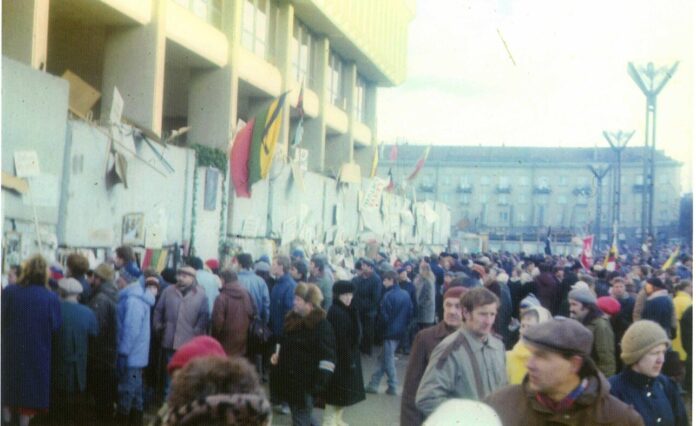
 American author and journalist Stephen Handelman was working as Moscow bureau chief for The Toronto Star in 1987-1992 and during that time was a frequent visitor to the Baltic States. In an interview with Lithuanian Radio & Television (LRT.lt), he remembers the events of January 13 in Lithuania.
American author and journalist Stephen Handelman was working as Moscow bureau chief for The Toronto Star in 1987-1992 and during that time was a frequent visitor to the Baltic States. In an interview with Lithuanian Radio & Television (LRT.lt), he remembers the events of January 13 in Lithuania.
Even before these events, the West was closely monitoring the situation in the Soviet Union. Most foreign journalists knew that the Baltics had advanced further than other Soviet-occupied countries. In the days leading up to January 13, before the tanks rolled in, there was a feeling in Moscow that something might happen, a sense of dialling back perestroika. In his resignation speech in December, 1990, USSR foreign minister Edward Shevarnadze had spoken of dark days ahead for the USSR.
Moscow knew that the greatest challenge would come from the Baltic, and the situation would worsen unless something was done. Lithuania was the main target. While world news focused on soon-to-be launched US operations in Iraq (Jan. 16, 1991), the USSR likely thought that its tactics in Lithuania might go unnoticed.
Handelman went to Lithuania as soon as he heard that the tanks were approaching, and the night of January 13th was driving around Vilnius, taking pictures of the violence. Those images have stayed with him, especially afterwards, when he and other journalists saw the bodies of the victims stored at a school. Even for a seasoned war correspondent, it was a harrowing moment.
There were about 25-30 foreign journalists in Vilnius at the time, most of them correspondents working in Moscow. They stayed off the streets, because they knew that they would risk being arrested or being sent back to Moscow if they were recognized as the press. Foreign correspondents in Moscow were watched closely, and although the situation in 1991 was much more liberal than ten years before, they could never let their guard down, for fear of being sent home. Which was why they were quite nervous in VIlnius.
In Handelman’s opinion, then-president of the USSR Mikhail Gorbachev was caught between the reformists and the reactionaries, and sent in the tanks to show that he was in control of the situation. He was not counting on the resulting massive reaction in Moscow and in USSR-occupied countries, whose anger with the regime intensified after Jan. 13th. He was too late – the reformers and pro-democratic forces were already stronger than anyone in Moscow had expected, and his plan backfired.
Even after 30 years, Handelman remembers the solidarity shown by the Lithuanians in the streets that night. They were amazing, he said, in conquering their fear and risking their lives to end repression, come what may. He noted that Lithuanians were most helpful to the foreign journalists, providing translators and transportation. In his view, the arrival of the tanks in 1991 served only to strengthen the solidarity of the people, as well as the hope for a better future that they had envisioned in declaring independence in 1990.
From an interview on LRT.lt





























